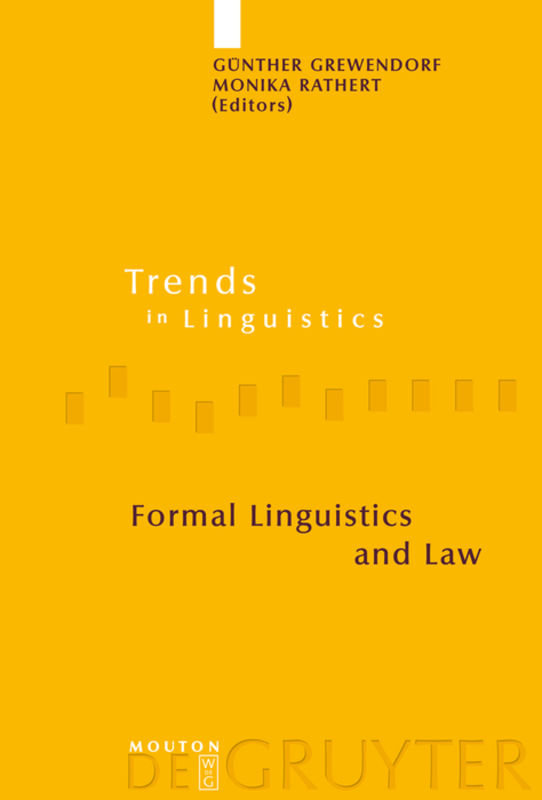This volume explores new interfaces between linguistics and jurisprudence. Its theoretical and methodological importance lies in showing that many questions asked within the field of language and law receive satisfactory answers from formal linguistics.
The book starts with a paper by the two editors in which they explain why the volume - as a whole and with its individual papers - is an innovation in the field of language and law. In addition, an overview about the most important research projects on language and law is given. The first chapter of the book is on understanding the law. Jurists and laypersons always ask for the precise meaning of a certain piece of the law. In linguistics, the discipline investigating 'meaning' is semantics; thus, it is to be expected that semantics can contribute to a correct understanding of the law. Chapter 1 also investigates the alleged incomprehensibility of legal language with the help of psycholinguistics. Chapter 2 is on identifying the criminal. To find the author of a blackmailer's letter, text/ corpus linguistics is instrumental. If the blackmailer uses the telephone instead of the letter, speaker identification and phonetics are necessary. The BKA stores all blackmailing letters in a database, but databases are only one possibility of organizing legal systems; another possibility is the application of tools from computational linguistics and artificial intelligence. These tools can be useful to handle terminology, to retrieve information, or to model legal theorizing in a formal system. Chapter 3 demonstrates a variety of examples of organizing legal systems. The topic of chapter 4 is multilingualism and the law. The European legislation is a product of legal and linguistic diversity, as the member states do not only differ in languages but also in their legal systems. One paper shows how Switzerland handles its multilingualism in legal drafting. The input of translation studies is of course vital in this field of research. An index for both subjects and persons complements the volume.



